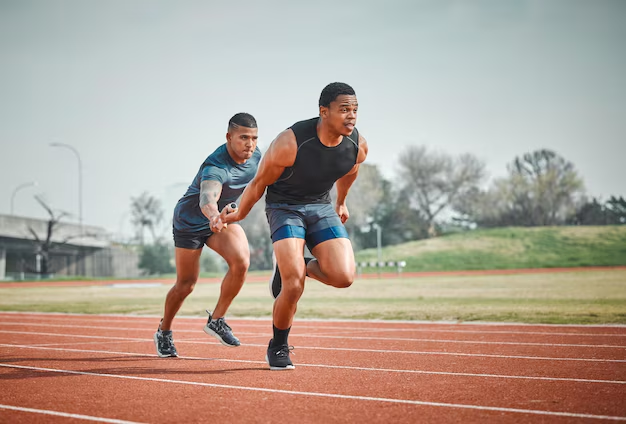How Sports Influence Culture and Society Around the World
Sports are much more than just games or physical activities—they are deeply ingrained in the fabric of society and culture across the globe. Whether it’s through the unifying power of a national team, the social importance of local sports leagues, or the way sports shape youth development and identity, their influence on culture and society is profound. Here’s an exploration of how sports impact culture, shape social norms, and influence communities worldwide.
1. Sports as a Unifying Force
One of the most powerful ways sports influence society is through their ability to unite people, often transcending differences in nationality, language, religion, or social status. Major global sporting events like the FIFA World Cup, the Olympic Games, and Super Bowl serve as platforms where people come together to cheer for their teams, creating a sense of national pride and shared identity.
Examples:
- National Identity and Pride: When countries compete in global sports events, such as the Olympics or the World Cup, they often use their teams as symbols of national pride. The victories or failures of a team can have a profound effect on the collective mood and sense of unity in a nation.
- Cultural Diplomacy: Sports can serve as a form of diplomacy, helping to bridge divides between countries. For example, the “Ping Pong Diplomacy” between the United States and China in the 1970s was a groundbreaking moment where table tennis helped open diplomatic relations between the two nations.
2. Sports as a Reflection of Social Change
Sports can often mirror or even drive social changes, serving as a reflection of the evolving values of society. Through sports, issues such as race, gender equality, LGBTQ+ rights, and economic disparity are brought to the forefront and can influence public opinion and social movements.
Examples:
- Racial Integration: The fight for racial equality in the United States was significantly advanced through sports. The breaking of the color barrier in Major League Baseball by Jackie Robinson in 1947, for example, helped challenge segregation and inequality in America. Athletes like Muhammad Ali and Tommy Smith have used their platforms to speak out against racial injustice.
- Gender Equality: Women’s sports have gained increasing visibility and respect in recent decades. The U.S. Women’s National Soccer Team’s fight for equal pay is a significant example of how sports can serve as a battleground for gender equality, with athletes demanding fair compensation and opportunities.
- LGBTQ+ Rights: Athletes, like Jason Collins in basketball and Billie Jean King in tennis, have broken barriers for LGBTQ+ representation in sports, challenging traditional ideas about gender and sexuality.
3. Economic Impact and Job Creation
Sports have a massive economic influence on societies worldwide, contributing to employment, tourism, infrastructure development, and global commerce. The sports industry itself is a multi-billion-dollar sector that affects various aspects of the economy, from professional leagues to grassroots clubs.
Examples:
- Job Creation: The sports industry employs millions globally, from athletes and coaches to event organizers, referees, and broadcasters. This creates numerous job opportunities and stimulates local economies, particularly in cities that host major events.
- Tourism: Sporting events attract international tourists, boosting local economies. Cities that host the World Cup, Olympics, or Formula 1 races often see significant increases in tourism revenue, as fans from around the world travel to watch the games.
- Sponsorship and Advertising: Brands and companies often leverage sports sponsorships to increase their visibility, creating a symbiotic relationship between sports and commerce. The Nike-Swoosh partnership with athletes like Michael Jordan and Cristiano Ronaldo has made sports marketing a cornerstone of modern advertising.
4. Sports as a Source of Social Mobility
For many individuals, sports offer a path to social mobility—an opportunity to escape poverty and gain recognition in society. Athletes from marginalized or low-income backgrounds often rise to fame and fortune through their talent and hard work.
Examples:
- The American Dream: In the United States, many young athletes from underserved communities view professional sports as a potential way out of poverty. Stars like LeBron James, Serena Williams, and Usain Bolt grew up in challenging environments but found success through their athletic prowess.
- Socioeconomic Impact: Sports academies and scholarships are a route for young people to access higher education and financial stability. Programs that offer free training and equipment have the power to change the trajectory of a young person’s life.
5. Cultural Identity and Tradition
In many countries, certain sports are deeply tied to cultural identity, heritage, and tradition. Whether it’s cricket in India, rugby in New Zealand, or baseball in Japan, sports can be a critical part of national identity and cultural pride.
Examples:
- Football (Soccer) in Brazil: In Brazil, football is not just a sport but a vital part of the nation’s cultural identity. The country’s rich football history, from legendary players like Pelé to modern icons like Neymar, is intertwined with national pride and global recognition.
- Cricket in India and Pakistan: Cricket is a national obsession in both India and Pakistan, with matches between the two countries holding great cultural and emotional significance. The sport unites millions of fans, creating a shared passion that transcends regional and ethnic differences.
- Rugby in New Zealand: Rugby is central to New Zealand’s national identity, and the All Blacks rugby team is a symbol of national pride. The sport is seen as a key part of the country’s heritage, with indigenous Maori culture playing an influential role in the game.
6. Sports and Health Awareness
Sports play a crucial role in promoting health and wellness on a global scale. Physical activities foster healthier lifestyles, and international sporting events often encourage people to engage in sports as a means of improving their fitness and overall well-being.
Examples:
- Global Campaigns: International sporting organizations, such as the World Health Organization (WHO), have used the visibility of sporting events to promote healthy lifestyles and physical activity.
- Grassroots Sports Initiatives: Many nations have government-sponsored programs that encourage youth participation in sports to combat rising obesity rates, promote mental health, and teach teamwork and discipline.
7. Sports and Media: Shaping Public Perception
The media plays a powerful role in shaping how sports influence society. Through television broadcasts, social media, documentaries, and advertisements, the narrative around sports is constantly evolving, and it affects how we perceive athletes, teams, and events.
Examples:
- Media Coverage of Athletes’ Personalities: The rise of athlete-driven content on social media (e.g., Instagram, Twitter) allows athletes to engage directly with their fans, influencing how they are viewed in the public eye. For instance, athletes like Cristiano Ronaldo and Serena Williams have built massive global followings by sharing personal stories and opinions.
- Sports Journalism: Media outlets often shape public perceptions about issues in sports, such as racism, sexism, or corruption in sporting organizations. Investigative journalism can lead to important societal changes, like the efforts to address sexual abuse in gymnastics or the fight for better working conditions for athletes.
Conclusion
Sports are an integral part of cultures and societies around the world. They are far more than just games—they are vehicles for unity, social change, economic growth, identity, and health. Whether it’s through breaking down social barriers, driving national pride, or providing opportunities for youth, sports have an undeniable impact on shaping the world we live in. The global reach of sports continues to make them one of the most influential cultural forces, with the power to unite, inspire, and challenge societies in profound ways.

